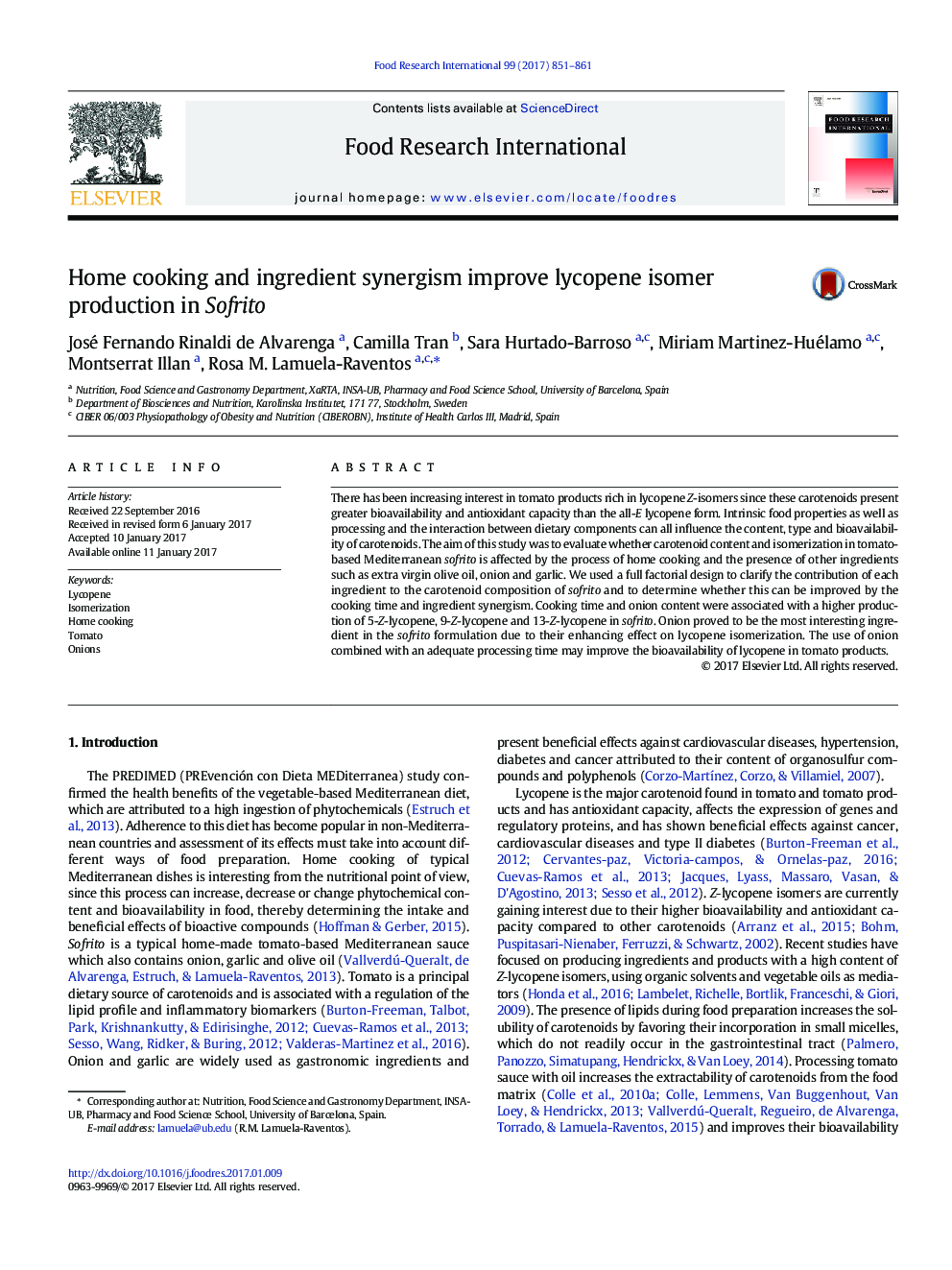| Article ID | Journal | Published Year | Pages | File Type |
|---|---|---|---|---|
| 5767893 | Food Research International | 2017 | 11 Pages |
â¢Onion enhances the production of lycopene Z-isomers in sofrito.â¢Synergism effect of onion and time of cooking improve the lycopene Z-isomers.â¢Combined effect of high content of oil and time of cooking decrease lycopene isomers.â¢Time of cooking is the major factor in the lycopene Z-isomers production.
There has been increasing interest in tomato products rich in lycopene Z-isomers since these carotenoids present greater bioavailability and antioxidant capacity than the all-E lycopene form. Intrinsic food properties as well as processing and the interaction between dietary components can all influence the content, type and bioavailability of carotenoids. The aim of this study was to evaluate whether carotenoid content and isomerization in tomato-based Mediterranean sofrito is affected by the process of home cooking and the presence of other ingredients such as extra virgin olive oil, onion and garlic. We used a full factorial design to clarify the contribution of each ingredient to the carotenoid composition of sofrito and to determine whether this can be improved by the cooking time and ingredient synergism. Cooking time and onion content were associated with a higher production of 5-Z-lycopene, 9-Z-lycopene and 13-Z-lycopene in sofrito. Onion proved to be the most interesting ingredient in the sofrito formulation due to their enhancing effect on lycopene isomerization. The use of onion combined with an adequate processing time may improve the bioavailability of lycopene in tomato products.
Graphical abstractDownload high-res image (185KB)Download full-size image
